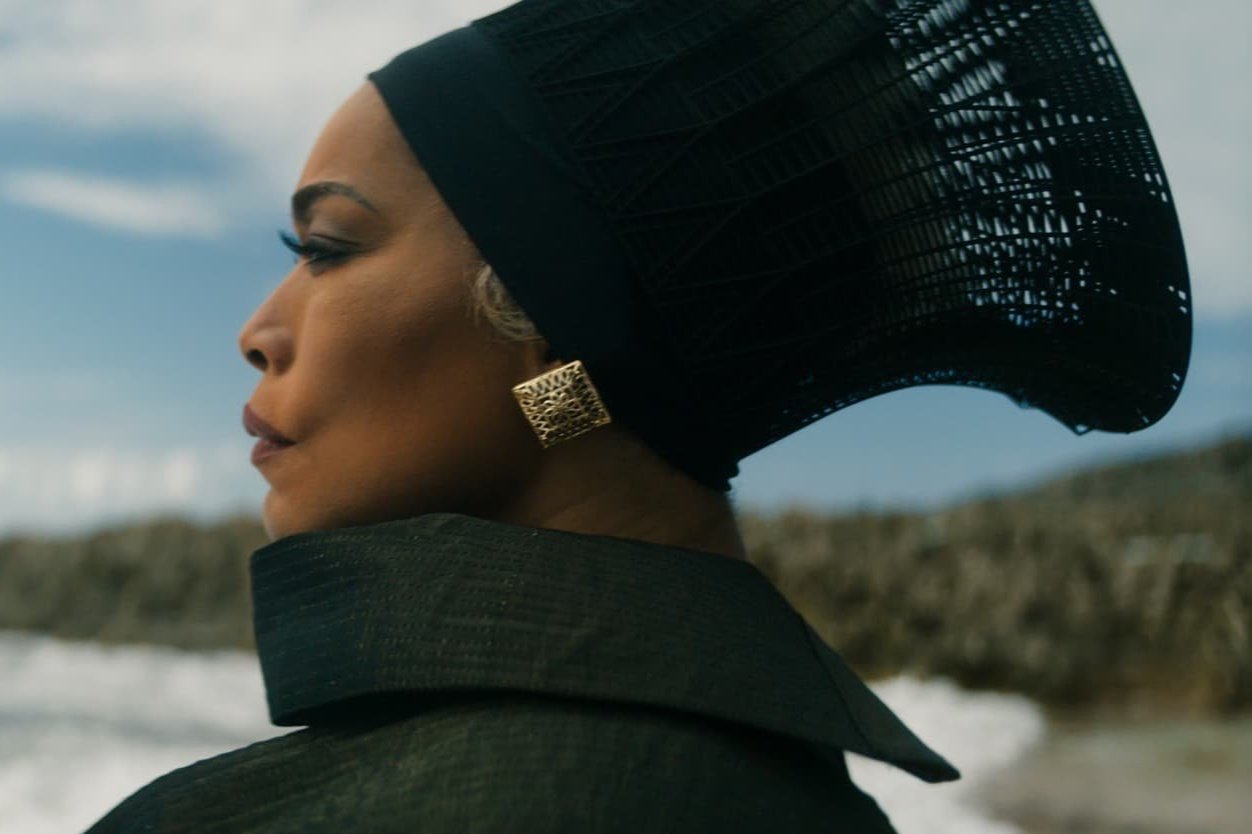Women's History Month
8 Ways The Woman King and Wakanda Forever Celebrate Black Women
Women's history is rich with stories of females empowering each other to reach new heights, often despite cultural and systemic limitations. But this month, instead of suffragettes, let’s go further back in time and draw wisdom from the West African kingdom of Dahomey, specifically the Agojie, an elite all-woman army that inspired the recent films The Woman King and Black Panther Wakanda Forever.
Strength
Gone are the days of damsels in distress. Enter the Agojie (The Woman King) and their fictional counterpart, the Dora Milaje (Black Panther Wakanda Forever). Both films portray Black women as fiercely strong and capable leaders, warriors, and heroes, shifting the spotlight from the traditional white male protagonist. The Woman King, in particular, features a predominantly Black female cast and crew, which is a rare and important representation of Black women in Hollywood.
Image Source: Everett Collection
“The part of the movie that we love is also the part of the movie that is terrifying to Hollywood, which is, it’s different, it’s new. We don’t always want different or new, unless you have a big star attached, a big male star. … [Hollywood studios] like it when women are pretty and blond or close to pretty and blond. All of these women are dark. And they’re beating … men. So there you go.”
-Viola Davis, who portrays Nanisca in The Woman King
Natural Beauty & Diversity
Again breaking the traditionally white mold of Hollywood beauty standards, these films showcase the diversity of Black women in terms of skin color, hair texture, and body type. Warriors rock their natural hair, traditional clothing (personalized and modified to show rank), and accentuate their unique features. This visual representation breaks down tired beauty stereotypes of days past and promotes inclusivity moving forward.
Image Source: Eli Adé/Marvel
“We created lots of mood boards that showed you the different indigenous tribes and what that look like. There's thousands of tribes throughout the continent of Africa, and we picked eight or 12 of them to represent the tribes of Wakanda."
-Ruth E. Carter, Costume Designer for Black Panther films and first Black person to win an Academy Award for costume design
Reconciliation
In both films, women step into their full identities by coming to terms with the past and deciding what their future will be. We witness women navigating complicated situations, grappling with trauma and loss—from Shuri's anger over a family death, to Nawi's realization of her true identity, to the fearless Nanisca realizing she is actually running from herself.
Image Source: Empire Online
“We have not only grief, but we also have a mother/daughter relationship. They are trying to process with each other how to move forward and keep each other uplifted at the same time. You see the themes of family, of protection, of love, of care, all in one place.”
-Letitia Wright, who portrays Shuri in Wakanda Forever
Rite of Passage
As far back as the tale of King Arthur and as recently as Rocky, the boy-to-man transformation is an oft-told and celebrated one, but these films exhibit the unique metamorphosis heroines face as well. Specifically, we see young Nawi and Shuri abruptly thrust into the role of warrior, and the burden of choice they must face as they change and grow with their respective tribes. Both films present identity as a personal choice, rather than a familial label.
Image Source: Ilze Kitshoff/Tristar Pictures
“For me, Nawi's driving force is something that I said to Gina in conversation - was Nawi fears being alone more than death, which is why she's more than willing to join an army where you're basically signing up for death. She really wants to be wanted. She wants to belong, and she finds that in the army.”
-Thuso Mbedu, who portrays Nawi in The Woman King
Resilience
The characters in the movies overcome significant challenges and obstacles, demonstrating the resilience of Black women in the face of adversity. Nawi must face physical trials before being fully assimilated into the Agojie, and Shuri must decide which is better for her people: fighting Namor or reaching a settlement with him. We also see Nanisca grapple with and ultimately overcome intense unresolved trauma from her young adult life, and Queen Ramonda uphold her duties and family despite suffering incredible loss. In all four scenarios, these women lean into their community for strength.
Image Source: Marvel.com
"I am Queen of the most powerful nation in the world! And my entire family is gone! Have I not given everything?"
-Queen Ramonda, Wakanda Forever
Community
The movies highlight the importance of sisterhood and solidarity among Black women. We see Shuri confide in her mother about her misgivings, Izogie take reckless Nawi under her wing as she acclimates to new surroundings, and Amenza bravely offer Nanisca hard truths that only a close friend can. The characters continually support and protect each other, demonstrating the power of female relationships.
Image Source: Sony Pictures
“I am really happy that there was that level of sisterhood within those two characters because it reminded us why we need to connect with our younger selves and younger people. With all the nuances included within this film, sisterhood will stand out because we rely on it so much. As Black women we need it to live and to be our better selves.”
-Lashana Lynch, who portrays Izogie in The Woman King
Leadership
These are stories of courageous matriarchs who are the glue of their army, tribe, and community as a whole. The Agojie aren't waiting to be saved by men, they're fighting them. And they aren't aspiring for romance either - in fact, they are considered ahosi, or wives of the king, since they ceremonially marry the King in a vow of celibacy. They are unrivaled warriors dependent solely on each other. Women are also celebrated as voices of wisdom and peacemakers; we see Nanisca advise King Ghezo, Queen Ramonda counsel Shuri, and Shuri plead with Namor for compromise on behalf of their people.
Image Source: Sony Pictures
“It was really important in terms of me working with Viola Davis. I’ve always wanted to be on set with her. I think it’s also important in terms of the kind of story that’s being told, the fact that there are so many women that are being empowered in this type of film.”
-John Boyega on why he took the role of King Ghezo in The Woman King
Legacy
These films honor the rich legacy of Black women and their ongoing contributions to society. Whether fighting alongside the Woman King of the Dahomey or protecting the Queen of Wakanda, we see strong women celebrated as they bravely navigate political, physical and emotional hurdles. These stories create a more accurate, positive, and inclusive narrative about Black women, both in history as well as in contemporary culture.
Image Source: Sony Pictures
“We need to be able to see ourselves as heroic or as kings or as queens and women kings; we’re missing that. And so those stories need to be told. Historical epics are great because they take you into a world and culture you may not be a part of, but you can connect with those characters. The world needs to do that with people that look like us. This took seven years to make, and I mean, Black Panther opened the door for this, which is beautiful. And I think these films should just keep building on each other, and the success of those will beget more stories that need to be told.”
-Gina Prince-Bythewood, director of The Woman King
Sources:
The Real Warriors Behind ‘The Woman King’
An Oscar-winning costume designer explains how clothes 'create a mood'
‘Black Panther: Wakanda Forever’: The Mother-Daughter Story at the Core of the Movie
South African actress Thuso Mbedu on playing a 19th century warrior in 'The Woman King'
'The Woman King' Stars—Lashana Lynch, Thuso Mbedu and John Boyega— Reflect on the Warrior Mindset
‘The Woman King’ Director Gina Prince-Bythewood On Viola Davis And Why It’s Important To “See Ourselves As Heroic Or As Kings Or As Queens”








